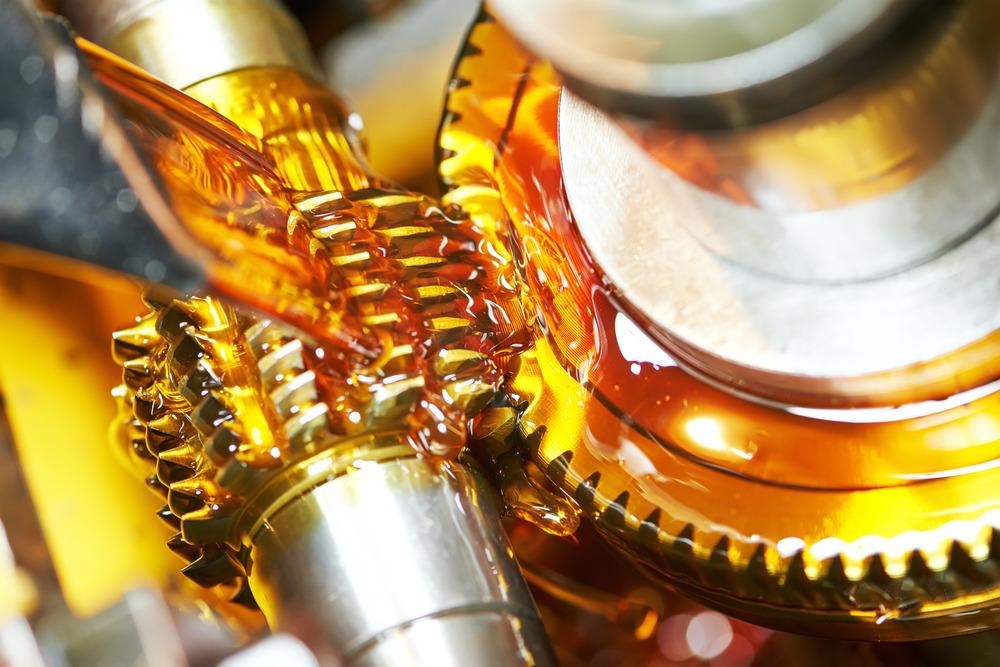Grinding is an essential manufacturing process, yet the heat due to friction associated with the process causes damage to the part being processed. Lubrication is used to reduce friction; however, traditional petroleum-based lubricants can harm the environment and are hazardous to humans.

Study: Synergistic impact of eco-friendly nano-lubricants on the grindability of AISI H13 tool steel: A study towards clean manufacturing. Image Credit: Dmitry Kalinovsky/Shutterstock.com
A paper published in the Journal of Cleaner Production addresses the issues associated with traditional lubricants and presents a novel eco-friendly technique to develop lubricating fluid using nanoparticles.
Grinding – Its Importance and Implications
Grinding is one of the most popular precision manufacturing methods for producing parts, offering excellent surface integrity and fine dimensional tolerances at a reduced cost. Nevertheless, the synchronized rubbing, shearing, and plowing action of randomly dispersed abrasive grains create a large amount of heat due to friction in the machining area.
It is important to note that almost all of the energy produced during the grinding process is converted to heat energy. The bulk of this heat permeates the machined part, especially difficult-to-machine materials (DTMMs). This high temperature has a significant influence on surface quality and grinding performance.
The Impact of Lubricating Fluids
To counteract the problem of overheating and ensure the highest possible grinding performance, lubrication for grinding purposes has emerged as a current area of primary scientific focus.
For decades, various lubricating fluids have been used to improve the grinding performance by reducing surplus heat within the machining area. Unfortunately, 85% of these machining fluids are petroleum-based lubricating fluids derived from crude oil extracts and extracts containing chemical additives such as chlorine.
The Negative Side of Lubricants
Including chlorine-based chemical additives in grinding lubrication fluids, such as corrosion removers and bactericides, creates a highly hazardous environment at extremely high temperatures and pressures, which are the norm in a grinding machine area.
This whole process has extremely negative environmental repercussions, including soil and water contamination, as well as adverse health implications for machine workers, such as cancer, breathing issues, dermatitis, and genetic illnesses.
As a result, it has become important to investigate practical and sustainable manufacturing solutions that are economically viable, safe for the community, waste-free, and limit negative environmental consequences.
A Transition Towards Green Eco-Friendly Lubrication
Vegetable-based oils are considered ideal options for replacing conventional lubricating fluids to make that progress toward green eco-friendly lubrication.
Vegetable-based oils have a relatively high viscosity, are biodegradable, and have great dispersion properties. Furthermore, straight vegetable-based oils provide an extra-strong lubricant layer that interacts aggressively with the metallic surface, reducing wear due to friction.
Many research teams have attempted to employ vegetable-based oils as lubricants for minimal quantity lubrication (MQL)-based grinding of DTMMs to replace traditional lubricating fluids.
Nanofluids – Overcoming Lubrication Barriers
Although various investigations have shown that MQL has superior lubricating properties, the cooling efficacy of MQL-based grinding is not optimum.
To resolve the issue of low cooling efficacy, a new kind of lubricant, nanofluid (NFs), may be manufactured to improve heat transmission.
Many researchers have emphasized the significant advantages of NFs over traditional lubricating fluids in grinding. As a result, NFs are used extensively in grinding-based processes to increase surface quality and reduce machining loads.
Basis of Current Research in Eco-Friendly Lubricants
The current study aimed to investigate the viability of eco-friendly vegetable-based lubricants, such as aluminum oxide-based NFs, in MQL-based grinding of AISI tool steel. The study aimed to consider technology used, sustainability, and product quality factors.
A variety of lubricants were used as the base fluid for MQL-based grinding in the study to determine the impact of the lubricating fluid and to analyze the cooling performance of the fluid on the AISI tool steel's technological and sustainability indices, including energy consumption, carbon emission, manufacturing costs, friction coefficient, roughness, BC proportion, surface characteristics, and microchip morphology.
Results of the Study
Through thorough research, the team pointed out that a sustainable MQL-based system with eco-friendly nanoparticle-based lubricants, particularly aluminum oxide-based NFs, is the ideal solution for lubricants in the precision machining industries for eco-friendly fabrication of steel components.
The aluminum oxide-based NFs method dramatically improved grinding performance, surface quality, and sustainability.
The team concluded that a wide range of precision machining-based industries has potential usage for sustainable, eco-friendly grinding. Thus, making NFs a very desirable lubricant when it comes to grinding-based processes.
Reference
Awale, A., Chaudhari, A., Kumar, A., Yusufzai, M., & Vashista, M. (2022). Synergistic impact of eco-friendly nano-lubricants on the grindability of AISI H13 tool steel: A study towards clean manufacturing. Journal of Cleaner Production, Available at: https://doi.org/10.1016/j.jclepro.2022.132686
Disclaimer: The views expressed here are those of the author expressed in their private capacity and do not necessarily represent the views of AZoM.com Limited T/A AZoNetwork the owner and operator of this website. This disclaimer forms part of the Terms and conditions of use of this website.